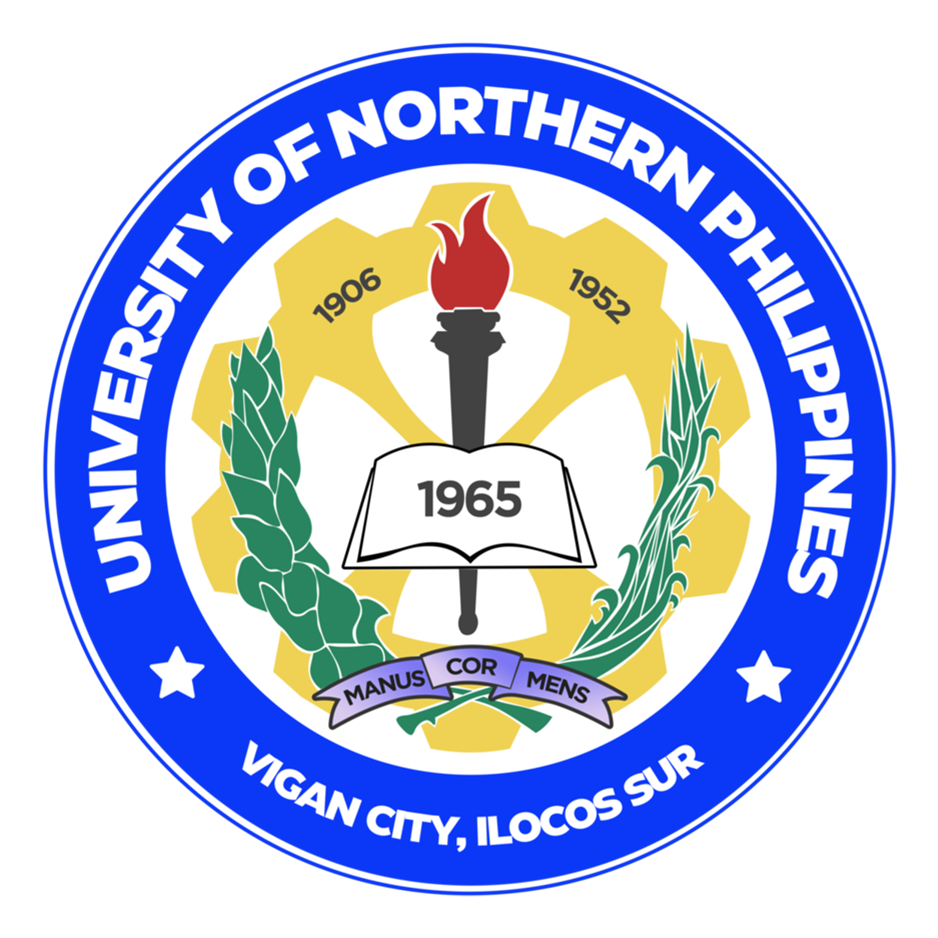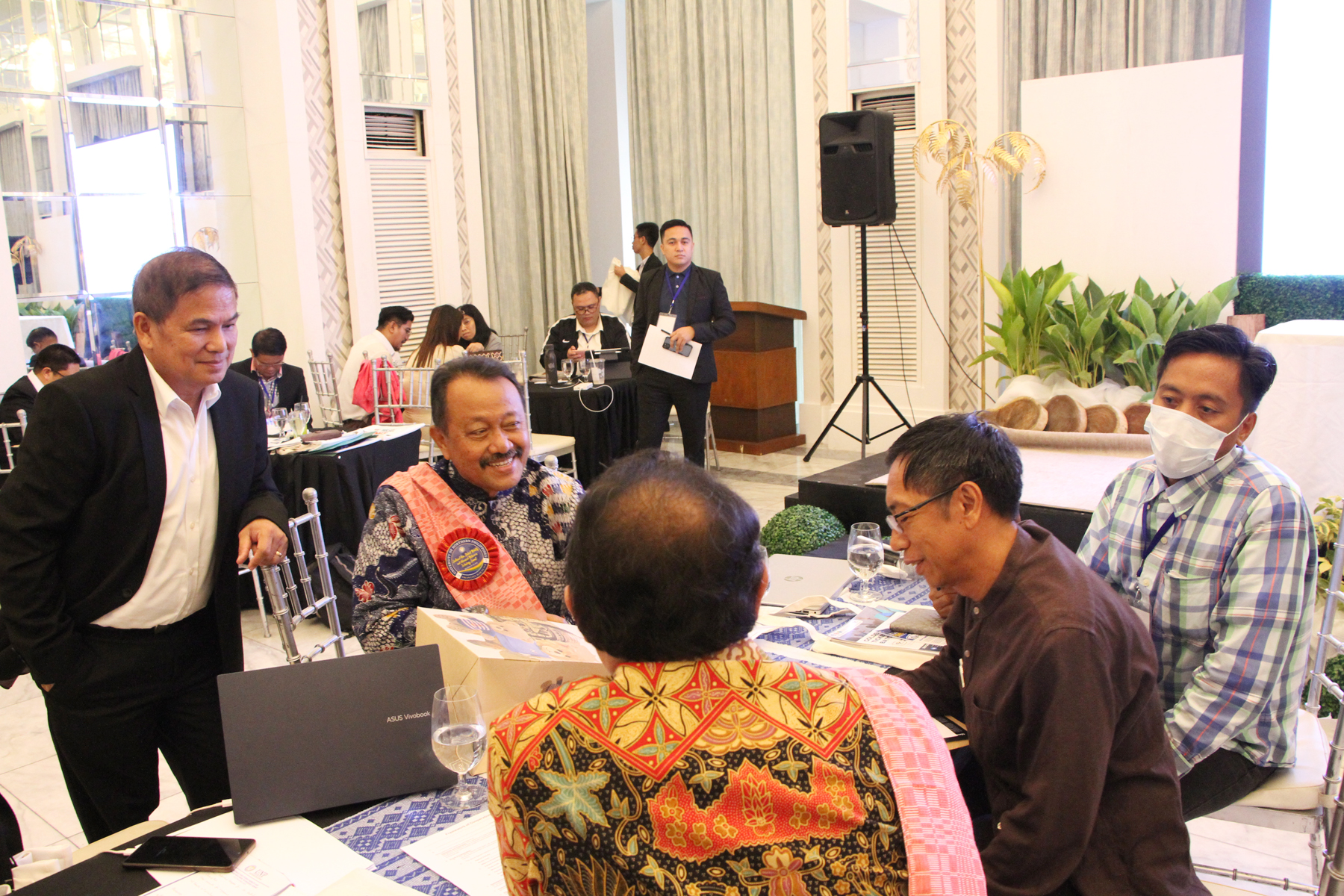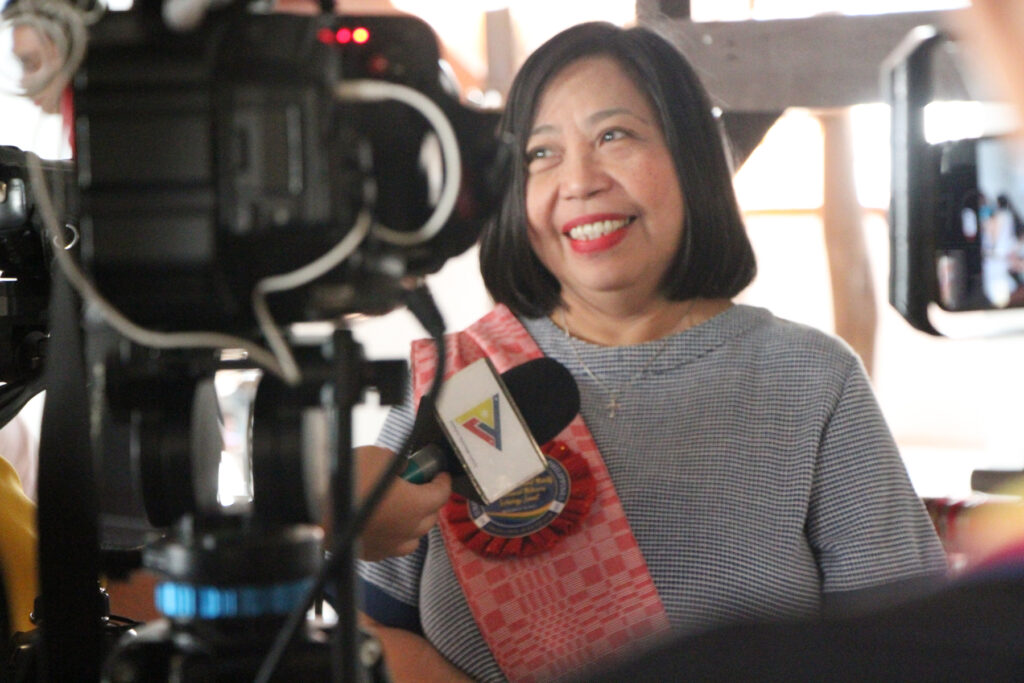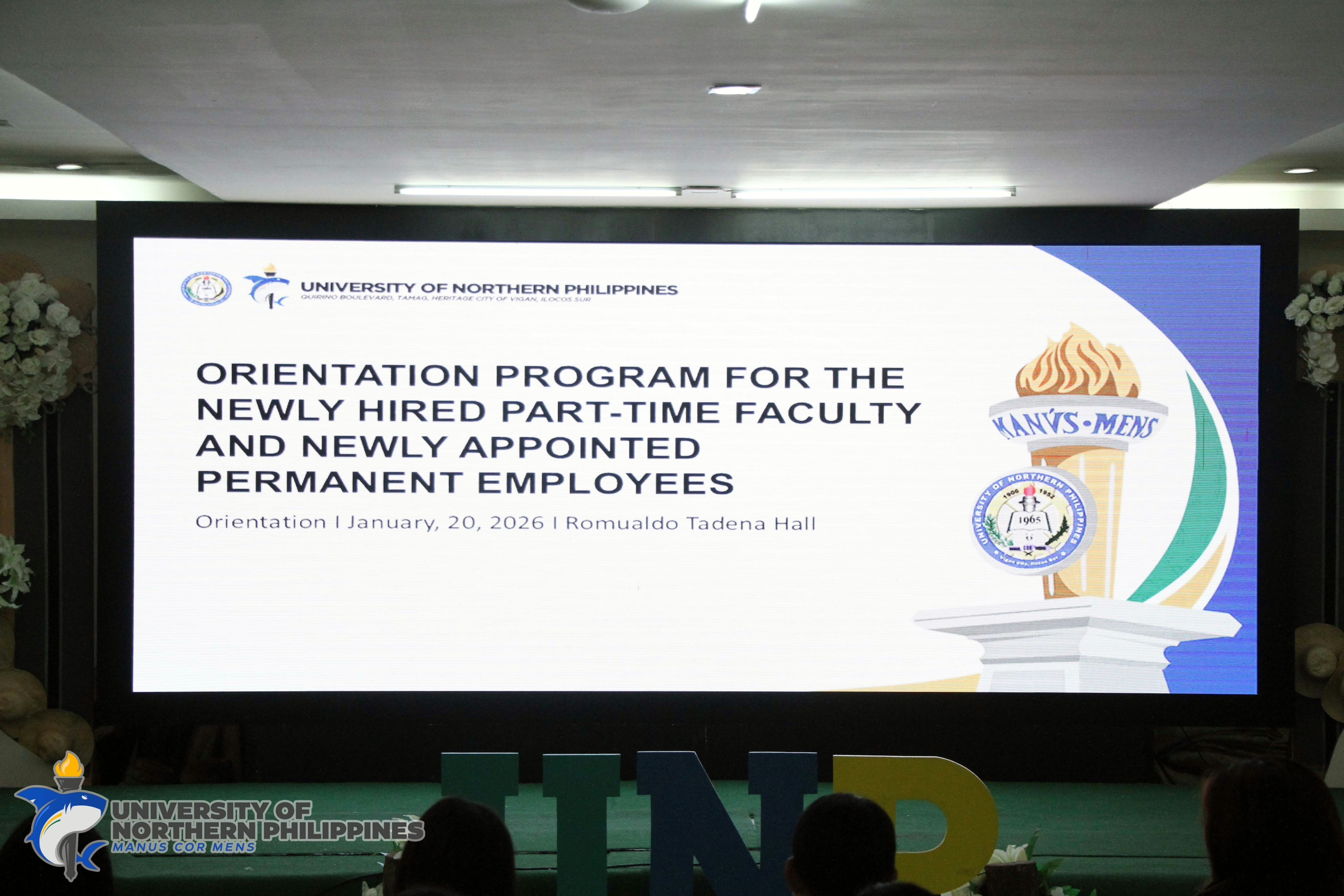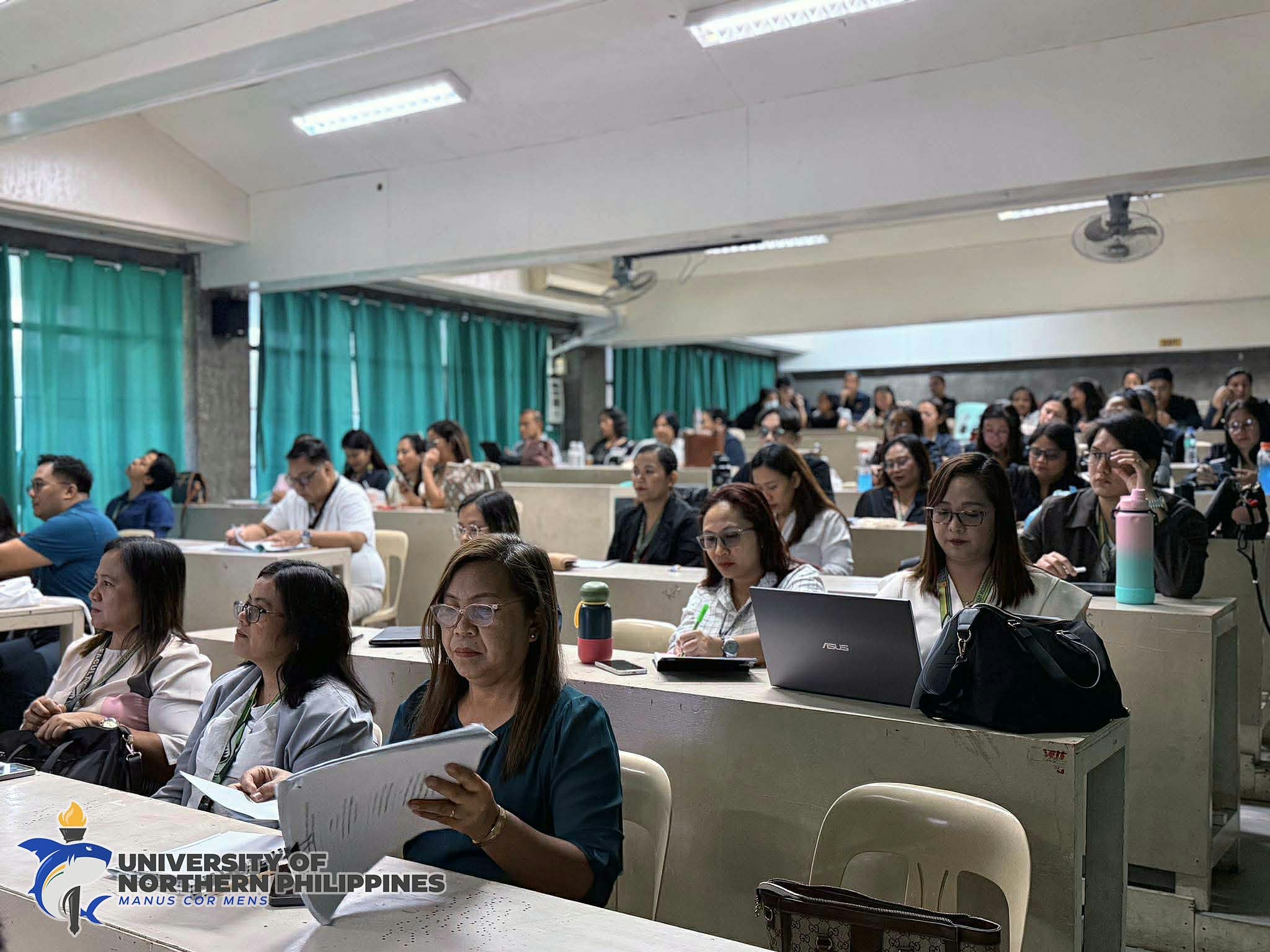Universities should freely move beyond the space of the nation.
Such is the overarching spirit of the Southeast Asia Student Mobility and Advanced Metaverse Technology Summit. This event was made possible through the joint partnership between the Southeast Asian Ministers of Education Organization (SEAMEO), particularly its regional center for Quality Improvement of Teacher and Education Personnel (QITEP) in Science, and the University of Northern Philippines.
UNP has stepped up to the challenge of gathering Indonesian and Filipino professors and university administrators at La Casa Blanca, Vigan City on November 21-23, 2023.
Dr. Edelyn A. Cadorna, the director of the University Research and Development Office, served as one of the focal persons. She partnered with Dr. Sally A. Jarin (coordinator of the Southeast Asia Student Mobility and Metaverse), Dr. Gatot Hari Priowirjanto (coordinator of SEAMEO Centre Indonesia), and Dr. Rizwan Darmawan of the SEAMEO QITEP in Science.
The first day is slated for the Southeast Asia Student Mobility forum, while the second day is for the Advanced Metaverse Technology Summit.
Dr. Erwin F. Cadorna, UNP President, welcomed the participants in the spirit of “inquisitiveness and advancement.” Accordingly, they have come together to delve into the concept of internationalization and integrate a global perspective into their programs.
“When we open our doors to the world, we not only enrich the educational experience of our students and ourselves, but we also foster a culture of innovation, collaboration, and global citizenship,” he added.
Dr. Marita R. Canapi, Commissioner of the Commission on Higher Education and Chair-Designate of the UNP Board of Regents, also graced the occasion.
She said that she is excited with the integration of Metaverse to the educational system as “virtual realities converge with physical realities,” thus leading to professional growth. She also pointed out that Metaverse can revolutionize internship experiences.
“Through Metaverse and the inclusion of physical and virtual realities, internships can be done without leaving their [interns’] place, still experiencing the same connectedness, professional demeanor, and technological skills,” she added.
Dr. Gatot Hari Priowirjanto, former director of SEAMEO Secretariat, also explained Metaverse as “future education” and how Artificial Intelligence (AI) is evolving rapidly, hastening the distribution of information and skills.
Dr. Indrawati, director of the SEAMEO QITEP in Science, represented by Mr. Reza Setiawan (deputy director), also introduced the SEAMEO QITEP in Science.
At the core of the event is the possibility of establishing partnerships under the aegis of Southeast Asia Mobility. According to Dr. Sally A. Jarin, Coordinator for the Southeast Asian Student Mobility and Metaverse, the program aims to provide employable opportunities for Southeast Asian students, create sustainable partnerships among higher education institutions (HEIs) in Southeast Asia, and seek commitments from participating countries.
Another highlight is the sharing of experiences on student mobility from participating institutions.
Dr. Amang Sudarsono (Electronics Engineering Polytechnic Institute of Surabaya) discussed the emerging trends in student mobility with a focus on Indonesia. According to him, his university’s study abroad program in Japan, Taiwan, and Italy is part of the curriculum.
Ms. Ma. Odessa M. Pacaul focused on the participation of Pangasinan State University in the SEA Teacher and SEA TVET (Technical and Vocational Education and Training), as well as the institution’s online student exchange and online faculty exchange during the pandemic.
She asserted that addressing the challenges often experienced by students engaged in student mobility must be a part of future programs. These include language barrier, cultural differences, lack of network infrastructure, separation anxiety, and mental health problems.
In the same manner, Dr. Natthaphon Santhi (Chiang Rai Rajabhat University, Thailand) explained the institution’s Global Internship Program (GIP) with a focus on teacher education students who specialize in the teaching of English and Chinese as foreign languages.
Asso Prof Dr Balan Rathakrishnan also discussed the international engagement of University of Malaysia Sabah through its student mobility program.
The discussion on networking and collaboration for Southeast Asia student mobility among universities was led by Ms. Piyapa Su-angavatin. She presented the processes involved in pursuing study and internship programs abroad, as well as the roles and responsibilities of the institutions involved.
Looking forward to future collaborations, the participants went around the hall to scout for partners on student mobility, particularly those with whom they share similar programs and curricula.
They exchanged contacts and signed the Framework of Cooperation which “intends to set out the general principles of mutual cooperation in the field of education,” according to which they “jointly identify areas of mutual interest and carry out cooperative activities on the basis of mutual benefit.”
Dr. Erwin F. Cadorna joins the conversation on potential areas of partnership between the UNP College of Fine Arts and Design and an Indonesian university.
